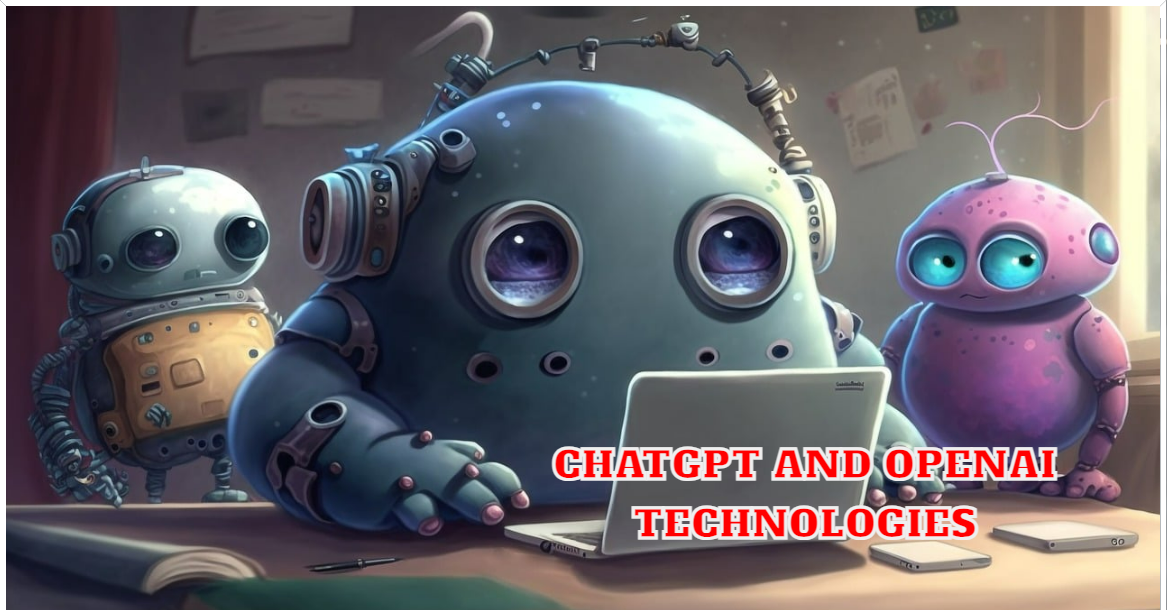In the field of artificial intelligence (AI), ChatGPT and OpenAI technologies are at the forefront of groundbreaking efforts to improve natural language understanding and interactivity. Through groundbreaking research and innovation, these technologies transcend traditional boundaries and provide individuals and organizations with powerful tools for communication, creativity, and problem-solving.
In this article, we take a deep dive into the transformative role of ChatGPT and OpenAI technologies, examine their impact on various sectors, and imagine future possibilities.
Natural language understanding and generation:
At the heart of ChatGPT and OpenAI technology is the ability to understand and generate human-like text, enabling seamless interaction and communication between humans and machines. Through deep learning algorithms and large-scale language models, these technologies can understand the nuances of human language, infer context, and produce responses that are consistent, contextually relevant, and indistinguishable from human responses.
In fact, this feature opens up a wide range of possibilities in a variety of fields, from customer service and virtual assistants to content creation and language translation. Chatbots powered by ChatGPT can interact with users in natural language conversations, answer questions, provide assistance, and make personalized recommendations with human-like fluency and empathy.
Additionally, OpenAI technology allows users to generate text-based content such as articles, stories, and poems in a fraction of the time it would take manually, fostering creative expression and collaboration. Authors, journalists, and content creators can use these tools to overcome writer’s block, explore new ideas, and create high-quality content that resonates with their audience.
Personalization and customization:
One of the key strengths of ChatGPT and OpenAI technology is the ability to personalize and customize interactions based on individual preferences, behaviors, and context. By analyzing user input and feedback, these technologies can tailor responses and recommendations to better meet users’ needs and expectations, creating a more engaging and satisfying experience.
For example, in e-commerce, a ChatGPT-powered virtual assistant can provide personalized product recommendations based on a user’s browsing history, purchasing preferences, and demographic information. Similarly, in education, OpenAI technology can tailor learning materials and exercises to each student’s performance level and learning style, optimizing learning outcomes and engagement.
Additionally, ChatGPT and OpenAI technology allow businesses to create virtual characters and avatars that can interact with users in a highly personalized and immersive way. These virtual personalities act as brand ambassadors, customer service representatives, or digital companions, facilitating deeper connections and interactions with users.
Ethical and responsible AI:
As AI technology continues to evolve, ethical considerations and responsible, AI practices will become increasingly important. ChatGPT and OpenAI Technologies are committed to adhering to ethical standards and promoting responsible AI development and deployment practices to ensure the impact on society is positive and beneficial.
One of the key principles in the development of ChatGPT and OpenAI technology is transparency. These technologies help users make informed decisions and reduce potential risks by providing users with clear information about the capabilities and limitations of their AI models and the data used to train them. I’ll make it.
Additionally, ChatGPT and OpenAI technologies focus on fairness and inclusivity by actively combating bias and ensuring fair representation in data and models. Through rigorous testing and evaluation, these technologies aim to minimize unintended consequences and reduce the risk of perpetuating existing inequalities.
In summary, ChatGPT and OpenAI technologies play a transformative role in improving natural language understanding and interaction capabilities, enabling seamless communication, personalization, and customization across different domains. Through innovative approaches to AI research and development, these technologies are shaping the future of human-machine interaction, enabling individuals and organizations to achieve new levels of productivity, creativity, and collaboration.
As ChatGPT and OpenAI technology continues to evolve, it is important to prioritize ethical considerations and responsible AI practices to have a positive and beneficial impact on society. By promoting transparency, equity, and inclusion, these technologies can reach their full potential to drive innovation and create value for individuals and communities around the world.



